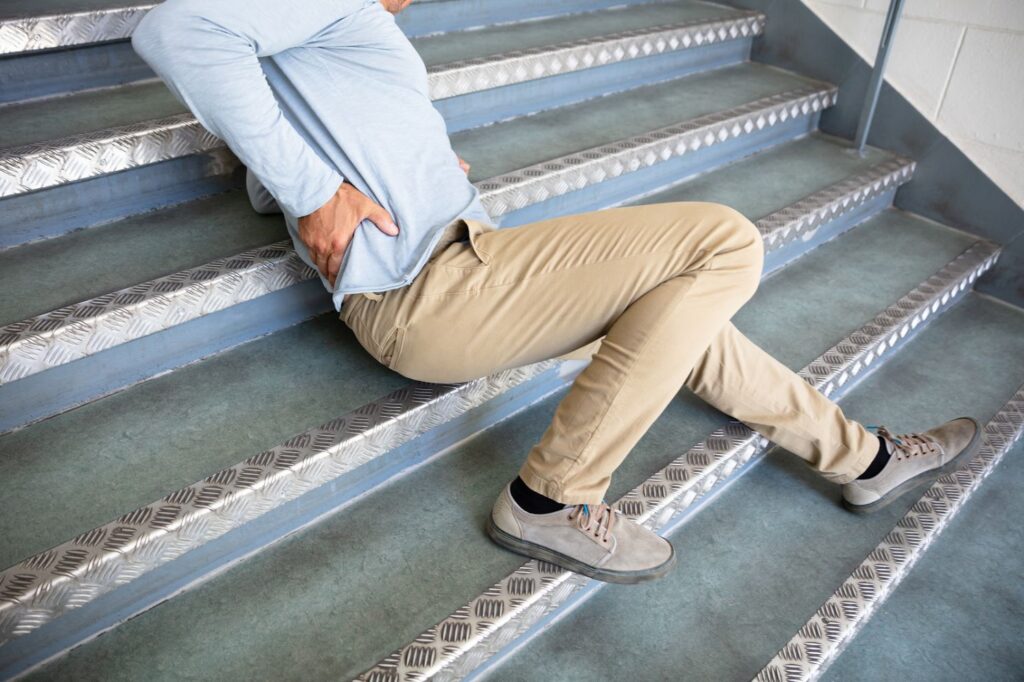In Indiana, over 2,800 motorcycle accidents were reported in 2018, leading to 112 fatalities and hundreds of serious injuries. If you’re injured on a motorcycle in this state because someone else was negligent, arrange to discuss your rights with an If you are injured on a motorcycle because someone else was negligent, discuss your rights with a motorcycle accident attorney.
More than a quarter of a million motorcycles are registered in Indiana. While the traffic laws are the same for automobiles and motorcycles, motorcycling is considerably different from operating a car, truck, or any other motor vehicle.
In Indiana, what are a motorcyclist’s responsibilities? How can you stay safe? What steps should you take if you’re injured because someone else was negligent? Keep reading, and you’ll learn those answers. You’ll also learn more about the rights of those injured by negligence in our state.
The First Responsibility – Motorcycle Insurance
Motorcyclists in Indiana must carry liability insurance. If you accidentally cause a traffic crash, your liability insurance helps to pay for any injuries or property damage you may have caused.
You must carry at least:
1. $25,000 of bodily injury coverage (for injuries to one person)
2. $50,000 of bodily injury coverage (for injuries to more than one person)
3. $10,000 of property damage coverage (per incident)
These are the minimum motorcycle insurance requirements under Indiana law. However, it is always better if you can purchase even more insurance coverage.
Basic Motorcycle Safety
If you take a motorcycle onto Indiana’s streets and highways, you are responsible for operating that motorcycle safely. Your odds of being severely injured – or worse – will be significantly lower if you combine a commitment to safety with a genuine respect for the traffic rules.
Listed below are some basic safety suggestions offered by experienced motorcyclists. Heeding these suggestions is the way to enhance your safety and to reduce substantially the likelihood of a motorcycle accident.
Tip #1: Use a Certified Helmet
If you are 18 or older, you are not required by Indiana law to wear a helmet while motorcycling, but wearing a helmet is essential for anyone who intends to ride safely. It has been proven – time and time again, for decades – that motorcycle helmets can prevent severe head injuries.
Riding without a helmet makes a motorcyclist five times more likely to sustain a serious head injury. The U.S. Department of Transportation certifies and establishes safety standards for helmets. Use a helmet that protects your eyes – as well as your head – whenever you ride.
If you’re injured while riding, and you file a personal injury claim to seek compensation for your medical costs, wearing a helmet indicates that you are a responsible motorcyclist. Otherwise, an insurance company or a trial jury could decide that you were the negligent party in the accident.
Tip #2: Along With a Helmet, Use the Right Safety Gear
Helmets are imperative, but you also must-have clothing and safety gear that protects you if there’s a crash or a skid. A thick leather jacket that is designed for motorcycle riding can help prevent serious injuries, especially if the jacket has elbow protection and carbon fiber supports.
Gloves and boots are also imperative. Leather or Kevlar gloves with carbon-fiber reinforcements give you added protection. Your boots must protect your ankles and feet in a crash or a skid. A neck collar is also a good idea. It will protect your collarbone and prevent other serious injuries.
Tip #3: Adhere to the Rules and Drive Defensively
Know and obey the traffic laws and drive defensively. On a motorcycle, passively following the rules may not be enough. At traffic signals, be certain that the vehicles on the cross street have come to a full stop before you proceed through the intersection.
Be aware of drivers’ blind spots. Unless drivers indicate that they see you, assume they don’t. Stay focused on the road and focused on the drivers around you. Always use your headlights, and hit your turn signal before you start slowing down for a turn.
Tip #4: Never Operate Your Motorcycle While Impaired or Fatigued
About twenty-five percent of the motorcyclists who die in traffic accidents were legally intoxicated when the accident happened, but prescription drugs and over-the-counter medicines can also make it dangerous to ride a motorcycle.
Drowsiness and fatigue can also reduce your awareness and your reaction time, so if you ride your motorcycle regularly, be certain that you are alert and getting enough sleep.
Tip #5: Routine Maintenance is Essential
Safe motorcycling means finding and fixing – immediately — anything that is wearing out or about to malfunction. Routinely check your tires, lights, and fluid levels. When you get on your motorcycle, adjust and clean your mirrors and check your horn, brakes, throttle, and clutch.
Tip #6: Take a “Ride Safe Indiana” Course
Indiana’s state-approved motorcycle safety program is called “Ride Safe Indiana.” Approved providers offer courses for beginning and advanced motorcyclists who want to improve their motorcycling skills. Ride Safe Indiana courses are offered at various locations across the state.
If You Are Involved in an Accident
Should you be involved in a motorcycle accident, if you are not unconscious or incapacitated, call 911 at once to ask for medical and police assistance. Take photographs of the accident scene and the damages, or if you can’t, ask someone to take photographs for you.
Exchange contact and insurance information with the other motorist, and don’t forget to ask the police how to get a copy of their written accident report. Don’t admit to any liability, and don’t accept an insurance company’s settlement offer before you meet with a personal injury lawyer.
Make and securely store copies of all insurance, police, and medical reports and documents related to the accident. If you are not treated at the scene of the accident or taken to an emergency room, have a medical exam within twenty-four hours of a motorcycle accident.
That medical examination should discover any latent or hard-to-detect injuries, and it creates the medical documents that you will need if you choose to take legal action.
How Will a Personal Injury Attorney Help You?
In Indiana, if you are injured by the negligence of an auto, bus, or truck driver – or even by a negligent motorcyclist – you are entitled to full compensation for accident-related medical bills, lost wages, personal pain and suffering, and all other related damages and losses.
The right Anderson motorcycle accident attorney will explain your legal options, protect your rights, and fight aggressively for the compensation – as well as the justice – that an injured victim of negligence needs, deserves, and is entitled to under Indiana law.

 CALL US NOW
CALL US NOW









